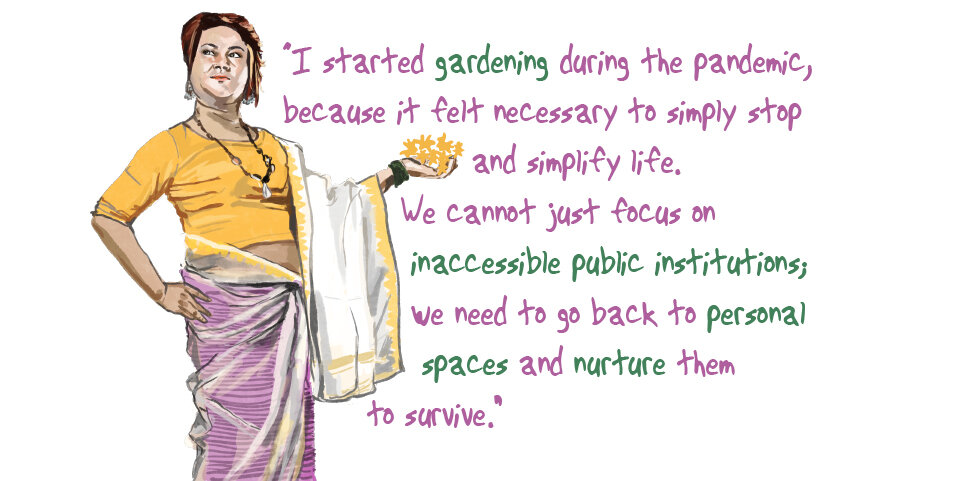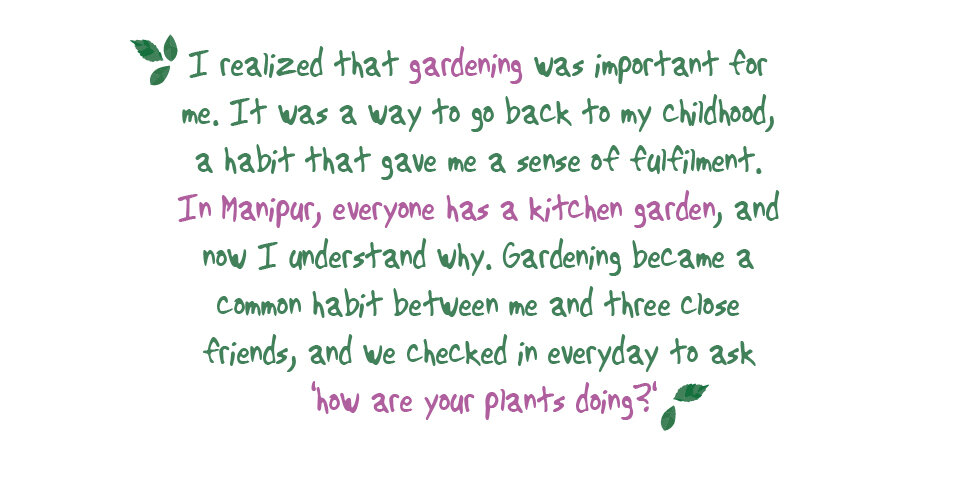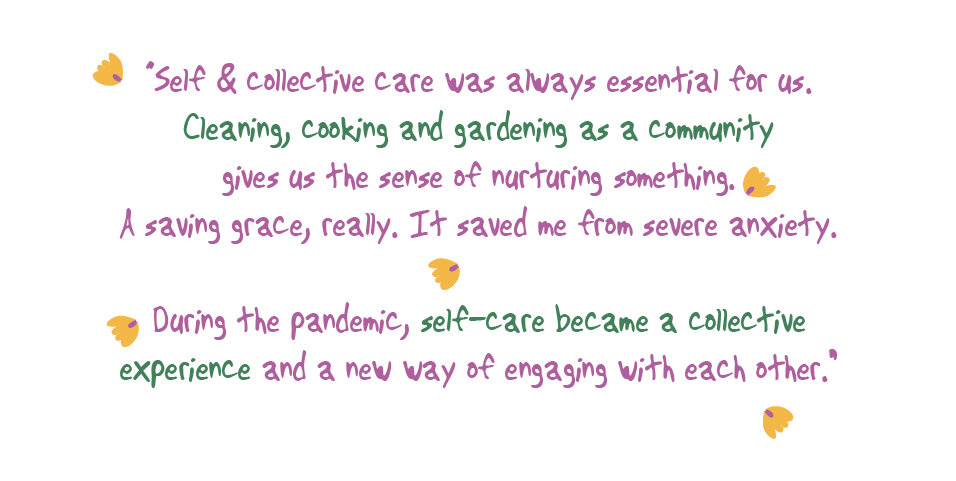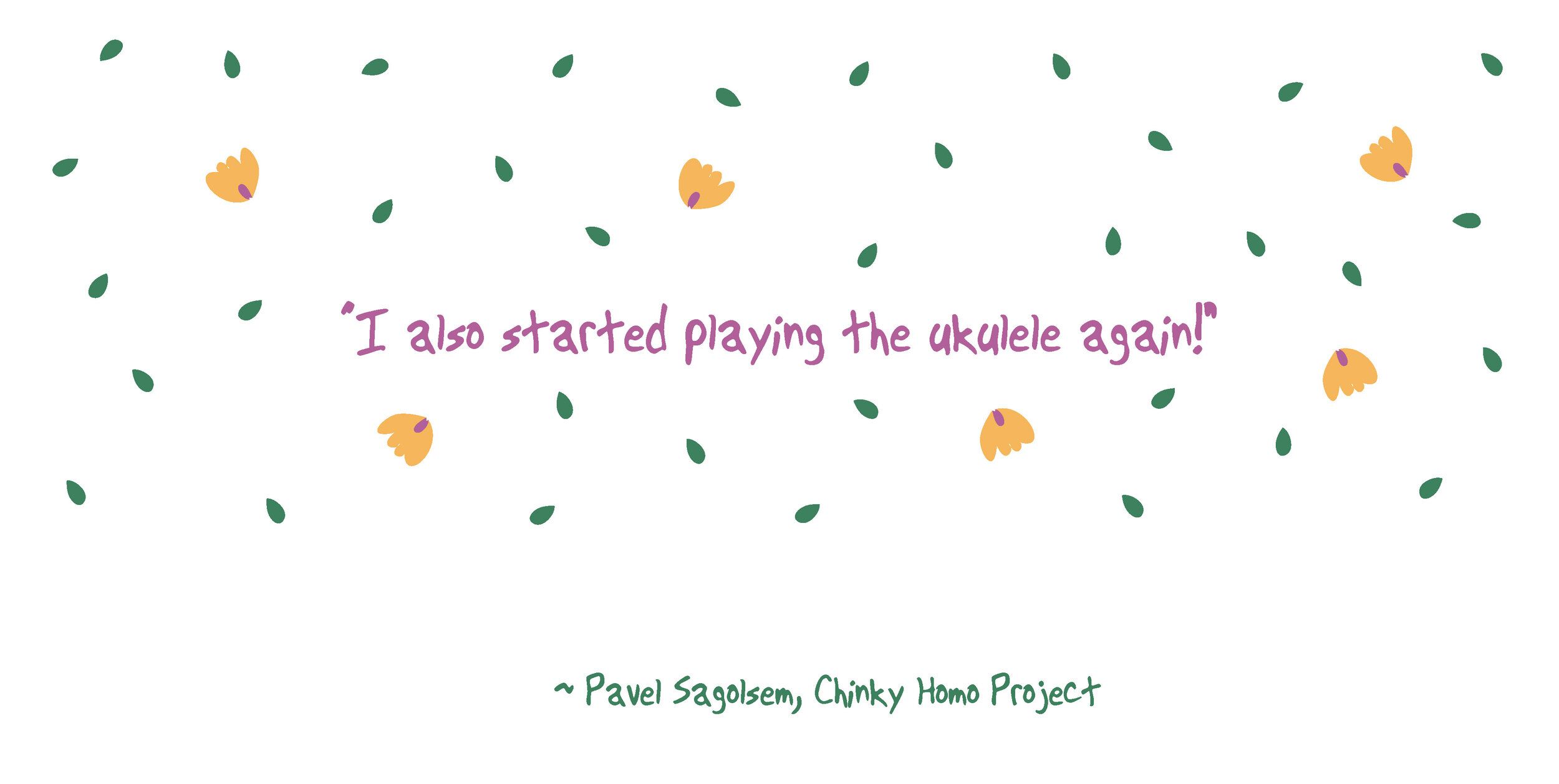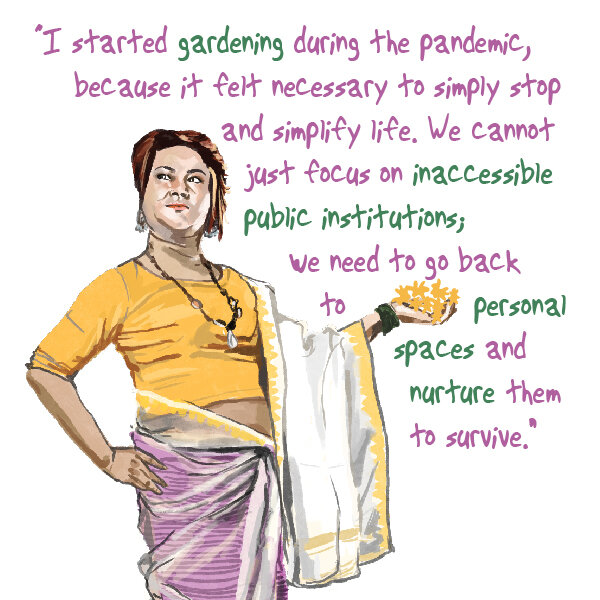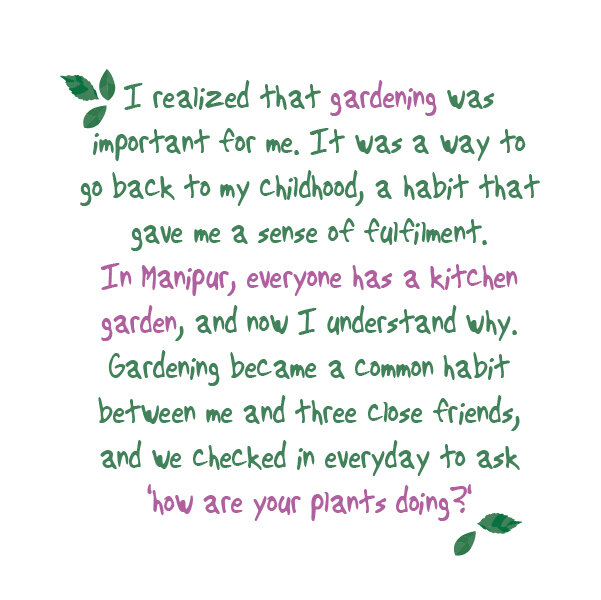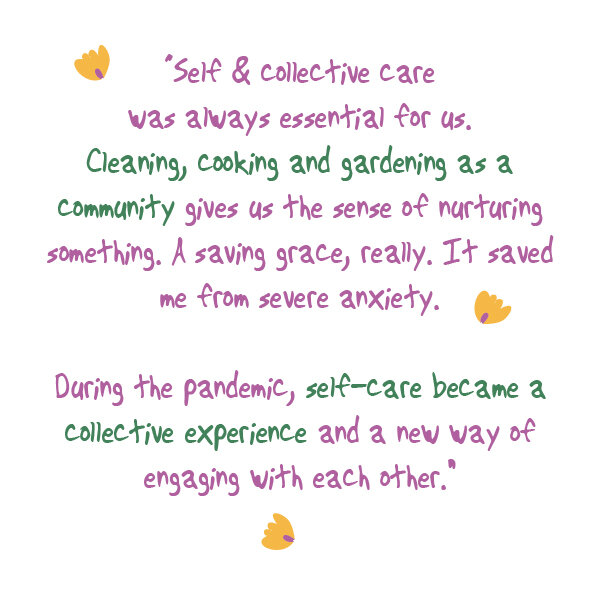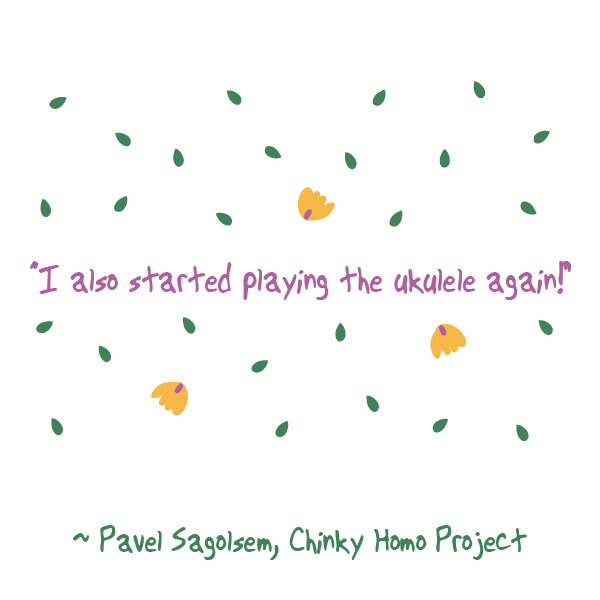Pavel Sagolsem
As a self-identified Chinky non-binary femme person making their home in Delhi, Pavel Sagolsem experienced the lockdown, through a lens of extreme isolation. Their work of creating queer-friendly spaces in civil society spaces, and their practice as a queer, feminist social worker has led them towards a dedication to LGBTQUI+ issues, since 2010. They are the founder of the *The Chinky Homo Project* .
"The pandemic reduced the safe and shared community spaces for the queer community. People like me, my friends, fellow activists in queer circles, we have all been living multi-cultural lives, forging alternative spaces and relationships in the fabric of Delhi wherein we could be ourselves. Spaces where we could congregate to connect through our lived experiences, and survive. These spaces vanished. The harsh realisation that we are still not a part of the public fabric became clear to us. Here we were thinking that we had achieved many steps in creating a niche and safe spaces for our community within the general social fabric, but then the lockdown suddenly threw us right back to a time of being invisibilised or neglected or side lined vis a vis the relief and necessary services that were meted out to general public as well as being forced to go back to our homophobic and abusive family owing to the pandemic. The lack of recognition, focus and available resources for and within the community as a "marginalised" or rather an invisibilised section of the population was again very vivid. The realisation that social structures still haven’t changed much added more grimness over the agony and struggle of the pandemic. This took a great toll on our mental health. For the queer folks living with their families, there was little to no space to escape or seek community space as a respite to the grimness. This is because they were under heavy vigilance and constant taunt from their families whom they had earlier escaped on account of their studies in a city non-native to them or for jobs and ways of earning. This really did take us back to the loneliness we felt as children."
"We were lonely, without support systems. Before all of this, we could get together and show and feel and live the solidarity during protests and be with like-minded communities. Now, we are back to the non-safety of the buildings and societies we live in. We had to fight these battles not just as activists, but as people living under the threat of violence in our personal lives too."
Pavel talks about the role race plays today. "Blaming the nation of China for Covid started being used as an excuse to cast suspicion on, and discriminate against, people from the North-East in India. And for a queer person from North east India, it amounts upto double the fear on the basis of our ethnicity as well as our queerness. I feel a fear exists in city-dwellers that migrants are coming to take over their jobs. Although the area is a queer hub as well as a ghetto where multiple ethnicity resides and coexists, there still exists a widespread indifference and disrespect towards trans women, non-binary people and people from the NorthEast, in Malviya Nagar."
When discussing mutual aid in the time of the pandemic, Pavel says, "In the second month of the pandemic, some of us Manipuri queer persons in the area decided to meet up safely and prepare food together. We shared how lonely we had been feeling, and for us, that was the first time we felt safe, connected and laughed and felt the love and acceptance in the air after the lockdown. For us who have migrated to Delhi from Manipur, we love to cook Manipuri food whenever we get together. And making it here, is such a process. Each gets a few ingredients, available at one's place (mostly sent to us from families back at home or bought from Munirka or Safdarjung etc) and it really is a community experience."
Simple acts of kindness can play the role of resilience.
“I started gardening during the pandemic, because it felt necessary to simply stop and simplify life. We cannot just focus on inaccessible public institutions; we need to go back to personal spaces and nurture them to survive. I realised that gardening was important for me. It was a way to go back to my childhood, a habit that gave me a sense of fulfilment. In Manipur, everyone has a kitchen garden, and now I understand why. Gardening became a common habit between me and three close friends, and we checked in everyday to ask 'how are your plants doing?'“
'Self and collective care was always essential for us. Cleaning, cooking and gardening together as a community gives us the sense of nurturing something. A saving grace, really. It saved me from severe anxiety. During the pandemic, self-care became a collective experience and a new way of engaging with each other.'
Interviewed by Nida Ansari
Edited by Shayontoni Ghosh
Illustration by Anushree Agarwal and Pooja Dhingra

